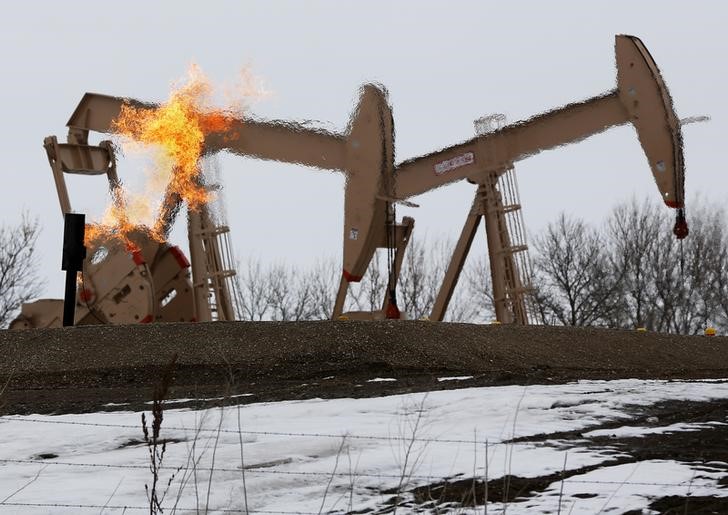Gold prices set for weekly gains on dovish Fed outlook; silver near record high
By Peter Nurse
Investing.com -- Oil prices fell Tuesday, weighed by increasing concerns over a global economic slowdown even with tightening crude supply.
By 09:20 ET (13:20 GMT), U.S. crude futures traded 1.4% lower at $83.34 a barrel, while the Brent contract fell 0.9% to $90.81, falling to the lowest in two weeks on continued jitters about the outlook for world demand.
Doubts over China's fuel demand outlook grew this week after the world's top crude oil importer delayed release of economic indicators, including widely-watched gross domestic product figures, originally scheduled to be published on Tuesday.
This prompted speculation that the growth figures were pulled in case they embarrassed senior Beijing officials as they attended the Communist Party congress, while also raising questions about the predictability and transparency of information in the world’s second-largest economy.
In Europe, German investor sentiment was less pessimistic than expected in October, with the ZEW economic research institute’s economic sentiment index growing slightly in October.
However, this provided only a small boost to sentiment as an index of current conditions sank to the lowest since the pandemic began.
On the supply side, the American Petroleum Institute releases its weekly estimate of U.S. crude stocks later in the session, and this will be of interest after last week's massive 7 million barrel build.
Additionally, the Biden administration plans to sell oil from the Strategic Petroleum Reserve before next month's congressional elections, according to a report by Reuters.
An announcement, designed to reduce crude prices, is likely this week and would market the remaining 14 million barrels from Biden's previously announced and largest ever release from the reserve of 180 million barrels that started in May.
This move is likely designed to counter the recent decision of the Organization of Petroleum Exporting Countries and its allies, a group known as OPEC+, to cut production by over 2 million barrels per day.
Elsewhere, the European Commission is set to propose another set of emergency measures to tackle high energy prices, but an immediate cap on gas prices looks unlikely as EU countries remain split over the idea.
German Chancellor Olaf Scholz said he would allow all three of the nuclear reactors currently scheduled to end operations in December to run at least through April.
